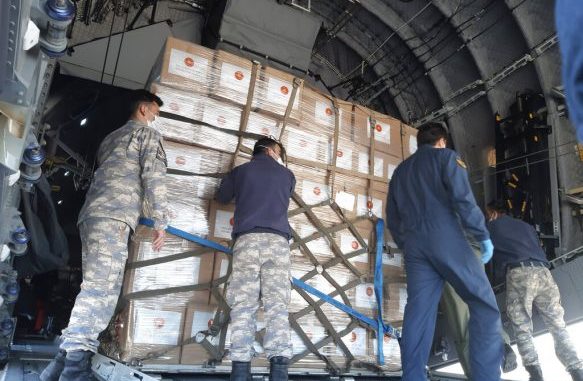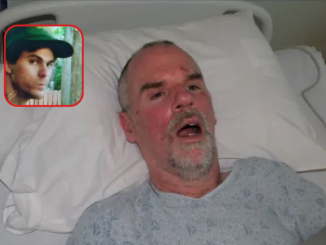

In this photo provided by the Turkish Defense Ministry, Turkish soldiers load a military cargo plane with Personal Protection Equipment donated by Turkey to help United States combat the new coronavirus outbreak, at the Etimesgut airport outside Ankara, Turkey, Tuesday, April 28, 2020. (Turkish Defence Ministry via AP)
OAN Newsroom
UPDATED 11:09 AM PT — Monday, May 4, 2020
With an international shortage of personal protection equipment, the United States has been importing masks and gloves from abroad. However, the CDC’s National Personal Protective Laboratory determined a number of imported masks may be ineffective at protecting against coronavirus.
In a random study of N95 style masks coming in from Europe and Asia, 60 percent of mask styles were not able to filter at least 95 percent of airborne particulates. The study found a significant number of KN95 masks, which is the Chinese equivalent of the N95, performed far below the standard with some only filtering 30 percent of airborne particulates.
Many U.S. states and other countries have discovered similar irregularities during their own tests and have begun returning medical equipment sent from China.
“In a public health emergency, you have to have PPE,” said New York Gov. Andrew Cuomo (D). “..You can’t be dependent on China to have the basic equipment to save lives in the United States, that’s what this came down to.”

FILE – In this May 1, 2009 file photo, a 3M N95 mask is modeled in New York. (AP Photo/Mark Lennihan, file)
Chinese officials have said any ineffectiveness detected was the fault of the countries who used the masks and not the manufacturers.
“There are many of the quality problems that occur in the export of anti-epidemic materials caused by different quality standards at home and abroad, and differences in using habits,” said Geng Shuang, spokesman for the Chinese Ministry of Foreign Affairs. “Some countries didn’t strictly follow the product usage rules.”
Reports have estimated millions of faulty masks have been sent to the U.S. in recent months. The CDC and the National Institute for Occupational Safety and Health are urging people to check to see that their N95 style masks have the proper marks of approval.
Every respirator approved by the National Institute for Occupational Safety has an approval number either on the mask or within the packaging that can be authenticated using their certified equipment list.







Be the first to comment